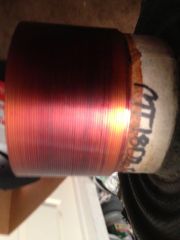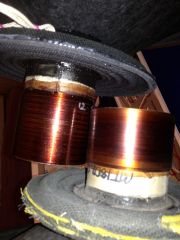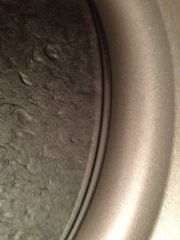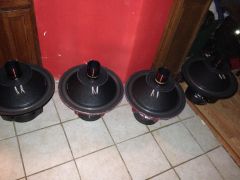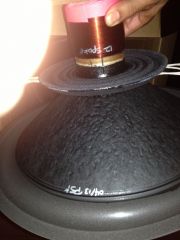-
Content Count
3,482 -
Joined
-
Last visited
Content Type
Profiles
Forums
Gallery
Everything posted by djjdnap
-
I hadnt had a drink in like 2 months from the bodybuilding. Went out last sat and dont remember a dam thing. apparently i was the life of the party and the annoying guy that tries to dance wt every girl he sees. Lol i think i turn into someone else during black outs lol, like a dam schizo
-
somethin like this
-
Ok so this might get a bit long winded. So everyone believes that their metabolism is what keeps them skinny or fat, which to an extent is true, but in reality what you eat is. In simple terms Calories In > Calories burned = Fat Gain Calories burned > Calories in = fat loss Metabolism is the process by which your body converts what you eat and drink into energy. During this complex biochemical process, calories in food and beverages are combined with oxygen to release the energy your body needs to function. Even when you're at rest, your body needs energy for all its "hidden" functions, such as breathing, circulating blood, adjusting hormone levels, and growing and repairing cells. The number of calories your body uses to carry out these basic functions is known as your basal metabolic rate — what you might call metabolism. Several factors determine your individual basal metabolic rate: Your body size and composition. The bodies of people who are larger or have more muscle burn more calories, even at rest.Your sex. Men usually have less body fat and more muscle than do women of the same age and weight, burning more calories.Your age. As you get older, the amount of muscle tends to decrease and fat accounts for more of your weight, slowing down calorie burning. Energy needs for your body's basic functions stay fairly consistent and aren't easily changed. Your basal metabolic rate accounts for about 60 to 75 percent of the calories you burn every day. In addition to your basal metabolic rate, two other factors determine how many calories your body burns each day: Food processing (thermogenesis). Digesting, absorbing, transporting and storing the food you consume also takes calories. This accounts for about 10 percent of the calories used each day. For the most part, your body's energy requirement to process food stays relatively steady and isn't easily changed.Physical activity. Physical activity and exercise — such as playing tennis, walking to the store, chasing after the dog and any other movement — account for the rest of the calories your body burns up each day. Physical activity is by far the most variable of the factors that determine how many calories you burn each day.Unfortunately, weight gain is most commonly the result of eating more calories than you burn. To lose weight, then, you need to create an energy deficit by eating fewer calories, increasing the number of calories you burn through physical activity, or both. http://www.mayoclinic.com/health/metabolism/WT00006 So basically if you eat every 3 hours your body is going to continue to burn the food in your system and not the fat stores. The body stores fat for energy, so why would we want to not use it? Everyone says that you will burn muscle if you do not eat, which has never been proven. The Fuel for the human body takes three basic forms: carbohydrates (sugars/glucose/glycogen), protein, and fat. Humans are capable of burning all three of these fuels, but do so at different times, rates, and under different circumstances. Using an extreme example, under starvation conditions the body burns its fat stores. Once fat stores are depleted the body begins digesting non-essential proteins and then finally essential proteins, which ultimately leads to organ damage and death. Carbohydrates Let’s start by discussing carbohydrates. Carbohydrates, or “carbs”, are simply sugar molecules linked to one another in varying arrangements. For example, starch, the most important carbohydrate in the human diet, is nothing more than numerous glucose molecules linked together in a long strand. Potatoes are an excellent example. Another example of a carbohydrate is glycogen. Glycogen is how humans store excess glucose (a single sugar molecule) for later use. Unlike starch, which is a long chain of individual glucose molecules, glycogen is a highly branched structure that allows the body to rapidly cleave off individual sugar molecules to be burned for energy. Carbohydrates can be further broken down into 2 categories: simple and complex. We’ve all heard of the term “complex carbohydrates”, which is basically a fancy way of saying multiple sugar molecules linked together in a complicated way. Contrarily, a simple carbohydrate is merely a few (1 to 3) sugar molecules linked together. Why do we make the distinction between simple and complex carbs? For starters, simple carbohydrates are rapidly absorbed by the gut and enter the bloodstream very quickly. Candy bars are a great example! If you need a quick boost of energy you can eat a candy bar. The problem is that since simple carbs enter the bloodstream so rapidly they get metabolized quickly. This causes you to lose that energy boost fast, which is why you often feel “de-energized” an hour or so after eating "junk food". In contrast, complex carbs get degraded by the gut much less rapidly, and therefore trickle into the bloodstream slower. This gives you a more sustained, but less pronounced energy boost. Whole grains are a great example of complex carbs. Why all the hub-bub about carbohydrates? Because they are the first energy source that is utilized during exercise. This forms the basis behind “carbo loading”, or eating a meal rich in carbohydrates the night before, or morning of, a planned work out. During exercise, the body will then utilize the individual sugar molecules in the carbohydrates to provide energy for your muscles and brain. Once you run out of sugar (or the form that humans store it in, glycogen) your body turns to the other alternative fuel sources: protein and fat. Fats The next fuel that gets burned is fat. All human beings have a certain percentage of body weight that is fat. From an evolutionary stand point this is advantageous. During times of drought or famine there were not enough crops to provide adequate carbohydrates, and thus humans survived by “burning” their fat stores. In biochemical terms, fat is nothing more than long chains of carbon atoms linked together. Suffice to say that it is the carbon in the fat that ultimately gets utilized to form energy that your muscles and other body tissues use. Why not burn fat first? Because fat is not as efficient an energy provider as sugar. This is the reason that endurance athletes, a few hours into a work out, hit the proverbial “wall”. The wall represents the point where they have burned up all the carbohydrate in their body, and are now running on fat reserves. The decreased amount of energy gained per unit of fat, when compared to what you were getting with carbs, results in the feeling of fatigue. These principles can also be used as aweight loss system. Using the basics of carbohydrate and fat metabolism it makes sense that people have difficulty losing weight when they exercise vigorously for only half an hour. This is because the quick vigorous exercise burns only carbohydrate stores in the liver (ie: glycogen); the body never touches its fat reserves! In contrast, running a marathon (or a nice long walk or jog in the park) causes the body to tap into its fat reserves. This is also the idea behind exercising early in the morning before having breakfast. In the morning your body has been burning carbohydrates to keep all your organs functioning; therefore, in the morning your body has less carbohydrate available to burn because it was slowly getting eaten away during sleep. If you exercise at this point you’ll have to tap into your fat stores earlier than you normally would so that your muscles can get adequate energy to keep going. Proteins The 3rd and final fuel is protein. The body rarely burns protein as its sole fuel source, and when it does it is usually under conditions of starvation. Interestingly, when no carbohydrate is present in the diet, the body will use the amino acid backbones of protein to form glucose (a carbohydrate) in order to supply the brain with adequate energy. It was once thought that protein provided the energy that athletes used during exercise. This was the basis behind the “steak-and-eggs” breakfast prior to an athletic event. This has fallen out of favor as biochemists (and athletes) now realize that the body prefers to burn carbohydrates, then fat, and finally protein if all else fails. http://www.virtualmedstudent.com/links/healthy_living/understanding_how_the_body_burns_carbs_proteins_fats_simple.html So The three main fuel sources in humans are carbohydrates, fats, and proteins. They are used preferentially under different conditions. In general, the body burns carbohydrates, then fats, and then proteins, in that order. Now lets think here so if I eat my body is going to be using that energy to burn glycogen and carbs instead of fat. So the longer i go with out eating the more fat is being used as energy.(Ketosis) A lot of people are confused by the term "ketosis." You may read that it is a "dangerous state" for the body, and it does sound abnormal to be "in ketosis." But ketosis merely means that our bodies are using fat for energy. Ketones (also called ketone bodies) are molecules generated during fat metabolism, whether from the fat in the guacamole you just ate or fat you were carrying around your middle. When our bodies are breaking down fat for energy, most of the it gets converted more or less directly to ATP. You can also get into a Keto state by eating low carbs. As you read above the body burns fat stores when its not burning carbs. glycogenolysis-break down carbohydrates, or glycogen, into simple glucose molecules lipolysis-breaks down fats into glycerol and fatty acids What about insulin you say? Insulin is a hormone secreted by the pancreas to help maintain optimal blood sugar level. Insulin's job is to remove sugar from the blood and store it, either as glycogen in the muscles and liver or, more frequently, as fat. Insulin is good. It helps maintain balance in the body. However, when triggered at the wrong times and in great amounts, insulin will make you fat. Preventing frequent and intense insulin responses is the single most critical step in reducing bodyfat for many people. Insulin also has a negative affect on resting metabolic rate. When you are not eating, your body is not absorbing food. If your body is not absorbing food, there is little insulin in the blood. However, your body is always using energy; and if you're not absorbing food, this energy must come from internal stores of complex carbohydrates, fats and proteins. Under these conditions, various organs in your body secrete hormones: When you eat carbohydrates by themselves, they digest too quickly and the sugar enters the bloodstream all at once, sending your blood sugar level soaring. This sets off an alarm and the pancreas secretes insulin into the bloodstream to take some of the sugar out. This is a good response, preventing a dangerous situation, but it comes at a cost. Severe insulin responses cause excess fat storage and low blood sugar. Low blood sugar causes a number of problems. The first is lethargy. Even mild activities seem exhausting. Another symptom of low blood sugar is mood swings. The greatest problem caused by low blood sugar when trying to reduce bodyfat is hunger. There are a number of different triggers for hunger and satiety. When blood sugar is the trigger, guess what specific cravings are usually manifested? You guessed it, carbohydrate. This sets up a vicious cycle: Eat Carbohydrate Increased Blood Sugar Insulin Secreted Carbohydrate Stored as Fat Low Blood Sugar Hunger (Carbohydrate Cravings?) Eat Carbohydrate... Eating can make you hungry and reduce energy levels. Repeatedly triggering the insulin response causes fat storage, hunger, and lethargy. Nobody intentionally makes themselves fat, hungry, and tired, but many people unknowingly do so several times every day. Carbohydrate is a very simple molecule that digests very rapidly and easily. Protein, on the other hand, is a very large, complex molecule, which digests much more slowly. Remember that when you eat different types of food together, they move through the digestive tract together, being digested and absorbed at the same rate. If you eat protein and carbohydrate together, the protein dramatically slows the carbohydrate digestion. Instead of a large amount of carbohydrate entering the bloodstream all at once and driving the blood sugar level up dramatically, the carbohydrate trickles slowly into the bloodstream. Protein "time-releases" carbohydrate. As digestion occurs, blood sugar is gradually burned off almost as quickly as it enters, preventing quick increases in blood sugar level that cause the insulin response. Blood sugar remains just slightly elevated for a long period of time. This creates the perfect situation: good mood, feelings of energy, minimized hunger, and a slow, steady supply of sugar to be burned with fat to provide the body with energy for daily activities. Fat digests very slowly, just as protein, so logically it could be combined with carbohydrate to prevent dramatic blood sugar fluctuations. While this will prevent the insulin response, think carefully about the logic behind consuming fat to be sure that the carbohydrate you eat will not be stored as fat. You store fat calories as fat calories instead of storing carbohydrate calories as fat calories. You get fat for a different reason. Fat is the most calorie-dense of all biological fuels, having about 2¼ times more calorie per gram than either protein or carbohydrate. Better to stick with low glycemic index carbohydrates and combine them with protein in a relatively low fat diet. http://inthezonefitness.com/Bodyfat.htm Consuming protein with carbohydrate helps ensure that the carbohydrate is not stored as fat. So when you here of people talking about spiking thier insulin this is why. Say you work out and burn off all your carbs until you are in a keto/fasted state of burning fat. Your insulin is low. You go home eat some fruit or low fat candy like sweet tarts and your insuling goes sky high. You then proceed to chug a protein shake after that and supposedly the protein goes straight to your muscles. Most post workout shakes have carbs in them already to do this FYI, just read the labels. In closing. - Workout 3 times a week with weights. - Eat 1g protein / lb lean body mass. - Reduce calories to lose 1-2 lbs / week. -Drink plenty of water Shameless plug for Yohimbe HCL
-
whoo an hr long geeez yea i'll catch it before bed or something. In essence i think we are saying the same thing. Your right about the intense workouts burning protein, Why most bodybuilders walk on the treadmill or do stairs at a slow rate. nothing to get the heart rate above 140 or so. And I also agree that yes not all calories are created equal because the body uses them differently. So yea calories to me haven't been as inportant as say the amount of protein and carbs and fats i get a day aka macro-nutrients why i guess the new thing is "Does it fit your Macros"
-
whoohoo.. Im slightly exited, gotta get the dremel on the older ones. Also the extended flatwound coil is alot beefier. Seems like a weekend project, but With no job lol, its a get er done project
-
I think the jest of it is that subs up port back the air from the ports bounce off the hatch and push the waves from the subs forward. And yea sub and port back will send them both to the rear with a little bounce from the hatch. Best bet would probably be to face them forward kinda like a wall except its not sealed off. all just theory tho
-
recones gonna be here on the 30th I almost want to do a total overhaul on my system. Need to figure out where i want to mount both amps. Do some overhauling on my wiring. Finish these doors, lol lifelong project with that. Almost want to add some kickpanels, but ehh, might just make a spot for them on factory middle console. I have nothing but time right now so when it warms up some more results should be quick
-
shoulda went wt subs up ports back
-

What glue to use for putting new dust cover on
djjdnap replied to bcst86's topic in Subwoofers / Speakers
amazing goop is at auto parts stores like oreilly, auto zone ect. CA glue works, but for me it makes the surround have white spots. -

advice on on 18inch subs that will handle 6k whatts need new ones
djjdnap replied to toxicmods's topic in Newbie Sign IN
-
http://www.soundsolutionsaudio.com/forum/topic/58711-4-week-out-prep/page-3#entry988380 got 4th out of 5 ppl, all i can think is i needed a darker tan, the other guys weren't bigger than me by any means
-
just bought my recones. After paying bills this month i was like fuck paying these bills and not enjoying the money i have saved up. Not sure on the lead time to get them tho, but im in no rush.
-
lol the old guy was actually like 50 so he did masters as well. The other 2 guys were in jr bodybuilding 21 and under i think. I think the reason myself or the 3 didnt win was because of not being dark enough. So i think its a matter of being washed out by the spotlights. But even backstage the guys were like man idk how u got 4th but ehh.. and i know i need more leg definition, but my legs are like 2x the size of those guys.. I have a powerlifting show next month, so i have to eat to get my energy back, then diet down for another bb show in june.. should keep me from thinking or motivated to not have any excuses next show
-
I got 4th I weighed in at 211lbs btw I still dont see what the judges were looking at. Other than not having a dark enough tan. But 4th was still a shock for me. the order of placement: 1----------------------------------4-----------------------------5-------------------------2-------------------------3
-
well for my first show i am pretty disappointed. 1 with the way things were ran and 2 with the judging. My 2 cents if you are doing bodybuilding, just do bodybuilding and not a joint figure/bikini/physique show. Prejudging for us was the only judging done, the afternoon show didn't matter and was only for the audience. So i was up at 7am and had to wait around until about 8pm to go back on with no place to really sit down or lay down. Anyway on wt the photos. not the best pics but ehh when i started about 4 weeks ---------------------- week3 --------------------- 2cd week show day wt the spray tan lol
-
wow... looked like an episode of operation repo. So did he get towed?
-
this sat the 13th I'll post some pics after im done of the before and after. Hopefully i can pull it together this last week.


